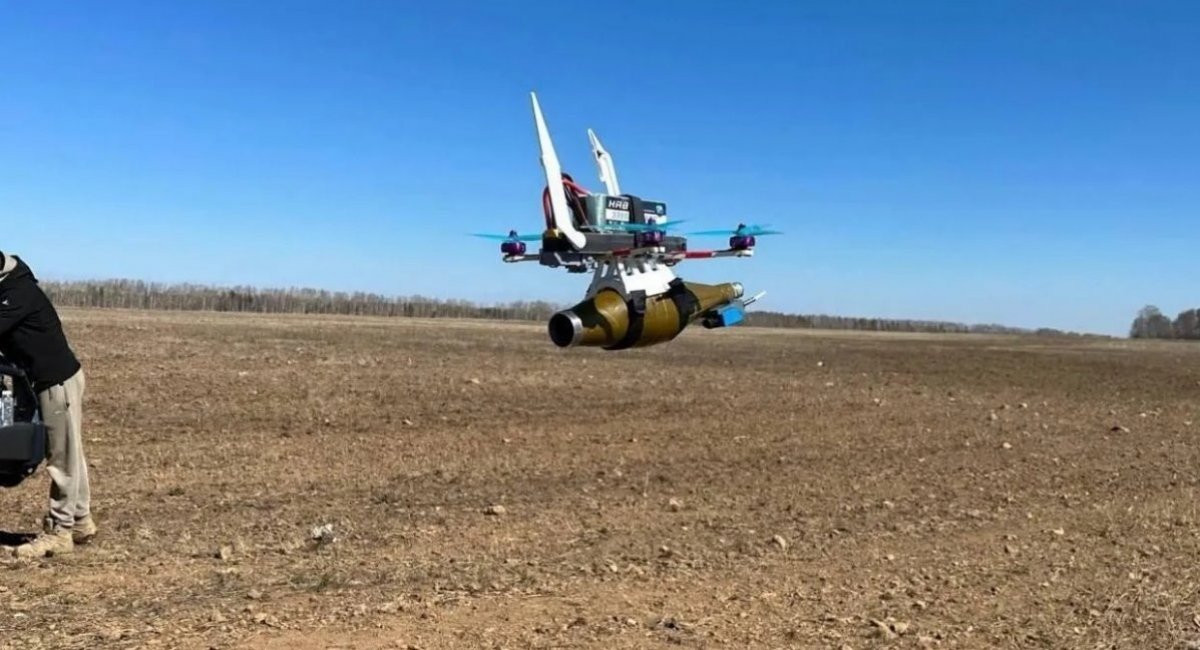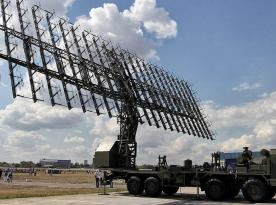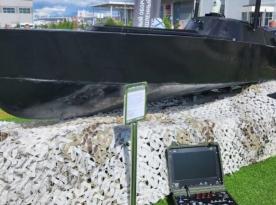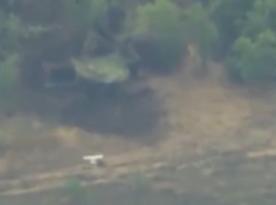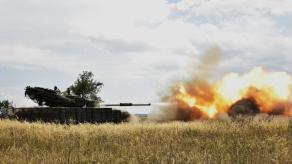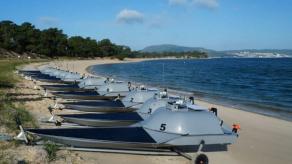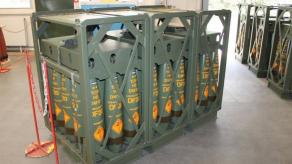Military-themed russian media report that the invasion army of russia, operating in Ukraine, has received prototypes of so-called drone motherships, i.e. unmanned airborne carriers of smaller FPV attack drones. The footage of tests with this airborne platform was published, too, it shows one of the FPVs detach from the mothership and carry on with autonomous flight.
The Russian military has begun using aircraft-style drones to drop FPV kamikaze drones (see video) - aircraft-style carriers save the small drones a charge, increase their range and relay the signal.The scheme is simple: disposable, first-person-controlled kamikaze drones are… pic.twitter.com/gxJqayLO00— Zlatti71 (@Zlatti_71) May 29, 2024
As noted by the authors, if the mothership doesn't find a target to dispatch attack drones to, it can return to the base, which is already a stark contrast to some similar developments that are supposed to be disposable. The new russian mothership has the optional vertical takeoff and landing capability.
Read more: Ukrainian Engineers Create Drone That Can Carry Several Smaller Ones
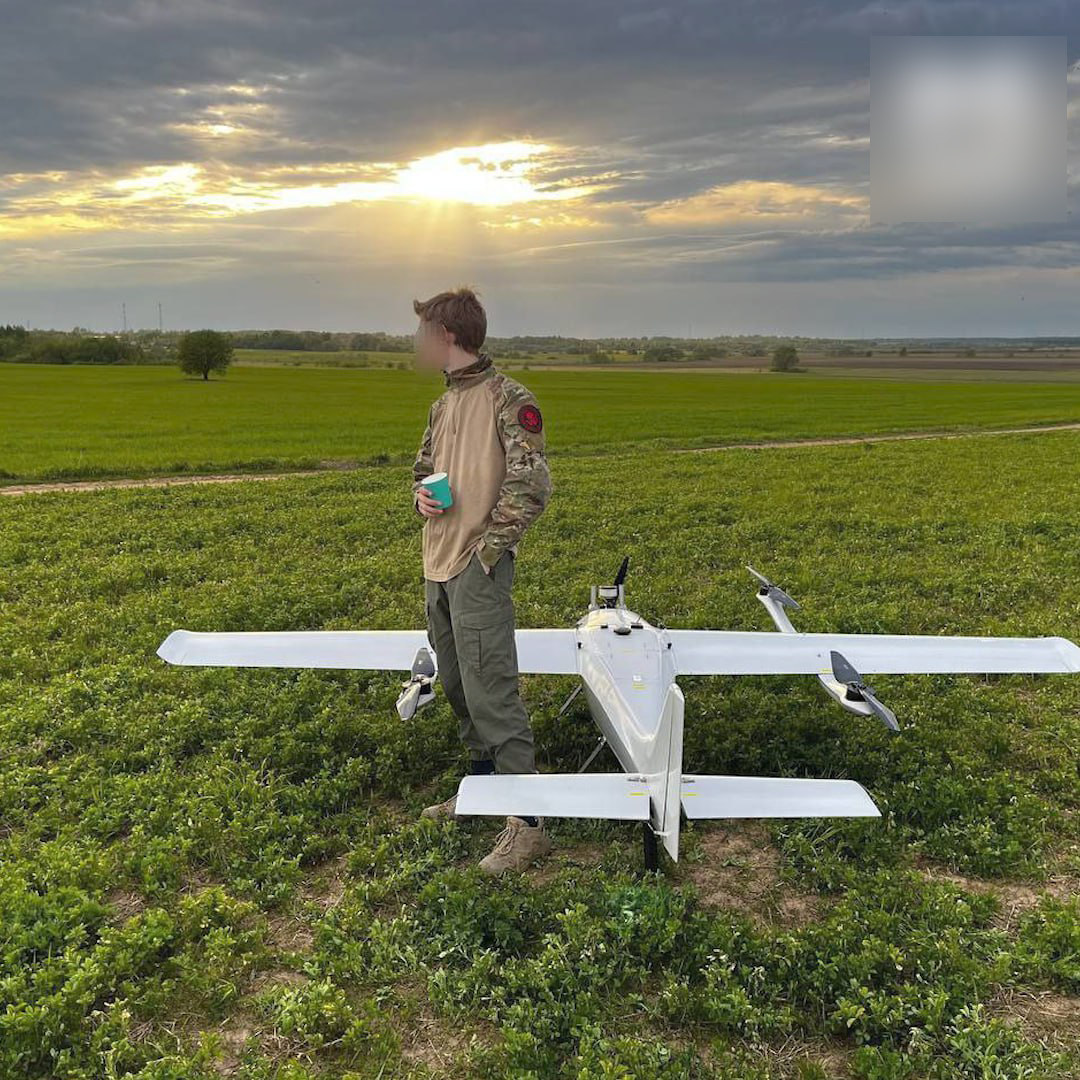
Overall, the use of drone motherships on the frontlines of the war in Ukraine is not a particularly new trend. Earlier Defense Express reported on the unofficial "presentation" of a similar aerial vehicle of Ukrainian design. Called simply Drone Bee Queen, it is a heavy multi-rotor UAV of quadcopter type. The capabilities and specifications are kept secret, the number of drones it can carry at once is not revealed either.
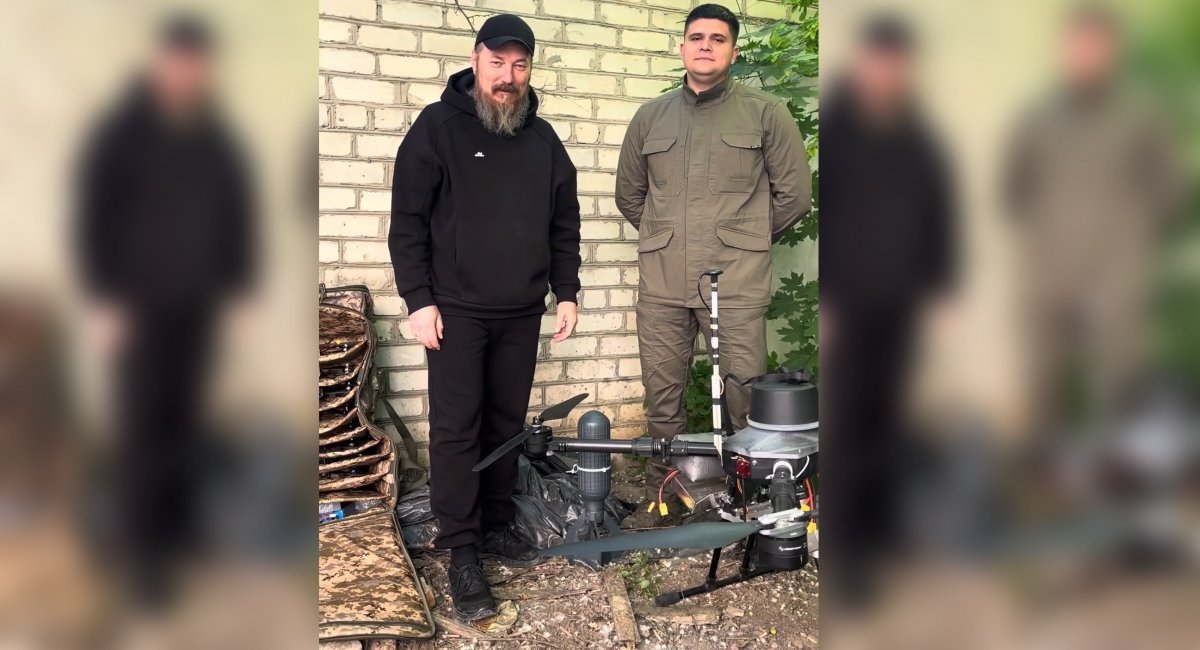
Moreover, the russian forces, too, had previously tried to develop such technology. However, a product they mentioned to be tried out in March 2024, named Pchelka / Pchyolka encountered operational difficulties when it came to practical application on the battlefield.
As Dmitry Kuzyakin, Director General of the Center for Integrated Unmanned Solutions admitted in an interview, Pchelka turned out too big and too heavy, and the speeds it could travel at were too low for effective operation.
"A drone mothership will only be effective when it can fly at high speeds and as low as ordinary FPV devices. For that, the developers need to study all the previous unsuccessful experiences of their colleagues," Kuzyakin said and stressed that a major downside to using a mothership is that when it gets intercepted or suppressed, all the FPV drones it carries go down with it.
Video: Pchelka UAV test takeoff
Defense Express reminds that the main purpose and idea of creating a mothership for FPV drones is to significantly increase the operational range of these small explosive aerial attack weapons, otherwise limited by battery endurance and signal link range. The mothership acts as both the carrier and the relay antenna, which can increase the total range by several times. We delved into the topic in more detail here.
Meanwhile, the Western military keeps underestimating the threat of FPV drones on the battlefield, a Ukrainian electronic warfare manufacturer is assured after having communicated this issue with partners from many countries at AOC Europe 2024 expo.
Read more: The Defense Intelligence of Ukraine About the Destruction of Two russian Boats in Crimea: 32 Sorties, Small Arms, 30 mm Cannons (Video)




